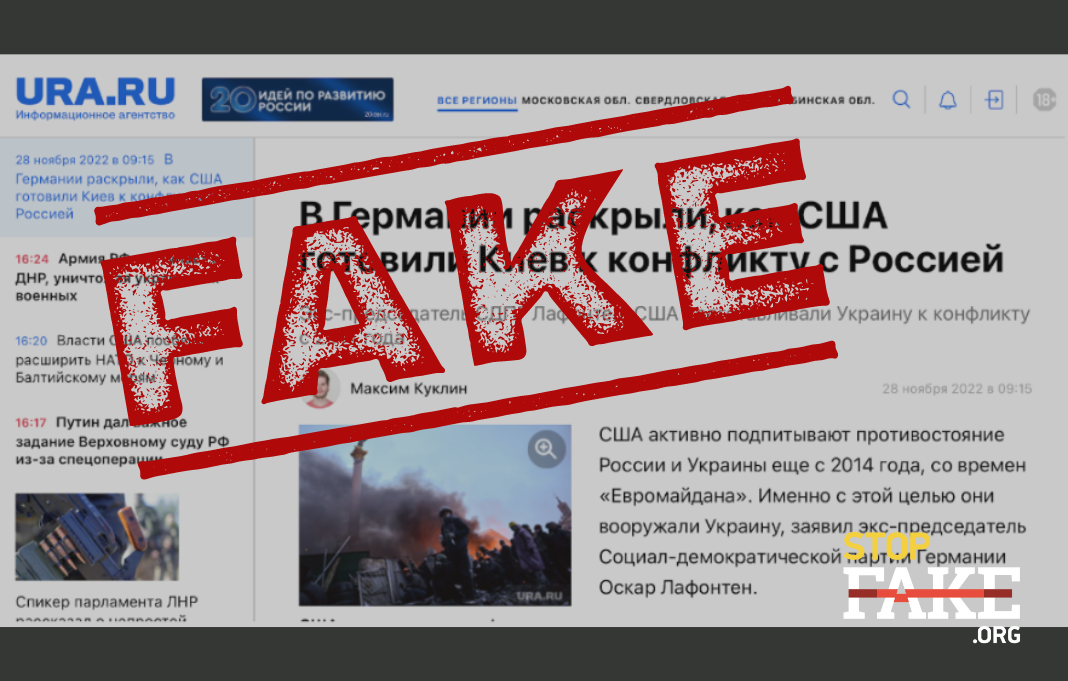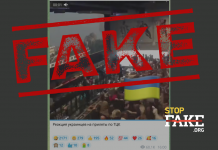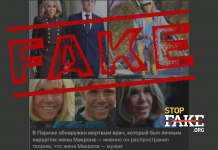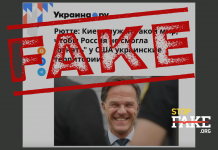Since the autumn of 2020, baseless accusations against Ukraine for allegedly selling banned weapons to Azerbaijan have been spread without any evidence. Ukraine signed the Convention on Prohibiting Chemical Weapons, which includes phosphorus bombs. In the 1990s, the entire chemical arsenal that Ukraine inherited from the USSR was destroyed and the process was diligently recorded by international observers.
Information is spreading online claiming that during the Armenian-Azerbaijani war in the autumn of 2020, Ukraine allegedly supplied Azerbaijan with prohibited white phosphorus munitions. Allegedly this was said by Robert Menendez, a Democratic US Senator and chairman of the Senate Foreign Relations Committee.
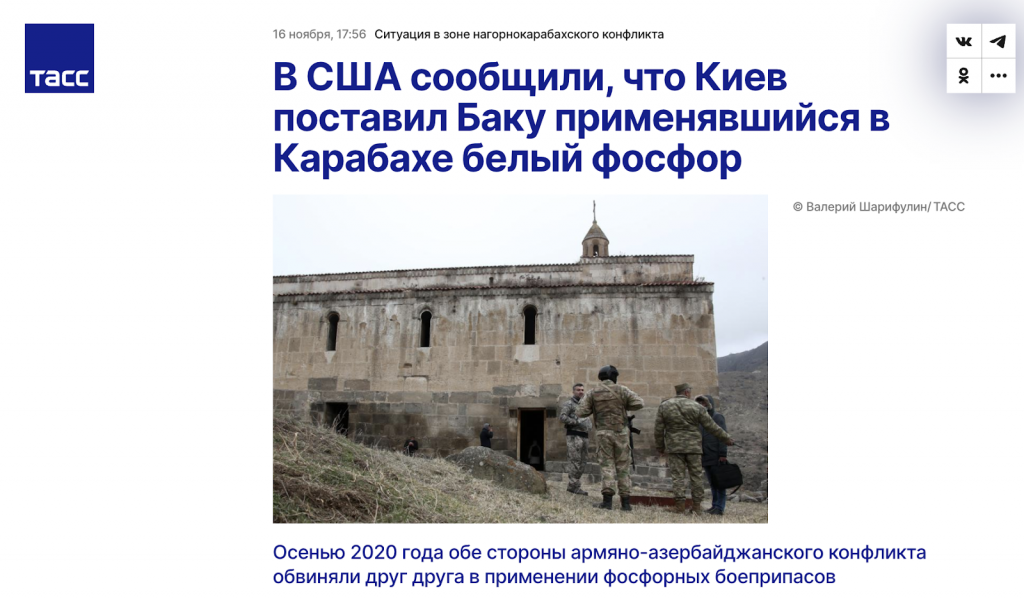
On November 16, while speaking at a hearing on the review of US policy in the Caucasus, Senator Menendez did accuse Azerbaijan of violating humanitarian law during the 2020 Armenian-Azerbaijani war, including the use of munitions containing white phosphorus. “Unfortunately, (these munitions were – ed.) supplied by Ukraine,” the politician said. To which Philip Ricker, State Department Senior Adviser on negotiations in the Caucasus, replied that he knew nothing about this.
During his speech, Menendez never specified what he was referring to, nor did he provide any evidence that Ukraine transferred banned weapons to Azerbaijan. The politician only added that in the fall of 2020, this topic was “widely covered” in the media.
At the beginning of November 2020, at the request of Russian movie director of Armenian origin, Sarik Andreasyan, Russian media disseminated claims that Ukraine allegedly supplied Azerbaijan with phosphorus bombs, which were then used to bomb Nagorno-Karabakh. On November 1, 2020, Sarik Andreasyan wrote on his Instagram page that Ukrainian President Volodymyr Zelensky is allegedly responsible for Armenian children dying in Karabakh because of the “supply of phosphorus bombs to Azerbaijan.” President Zelensky categorically denied this, saying that Andreasyan became “a victim of Russian propaganda, which has been spreading lies about Ukraine for years.”
“Ukraine has never supplied any phosphorus bombs anywhere. Never. Especially in places where there is already tension and many hotheads who want to solve something geopolitically,” Volodymyr Zelenskyy wrote.
Commenting on Sarik Andreasyan’s accusations, Deputy Director for Foreign Affairs at the Center for Army, Conversion and Disarmament Studies Mykhailo Samus noted that this is not the first time that information about Ukraine using or selling prohibited weapons to third countries is spread by Russian media. Earlier, Russian propaganda baselessly accused Ukraine of using phosphorus bombs in Donbas and supplying them to Syria. This information was also refuted and recognized as false by international organizations. In a commentary for RFE/RL, Mykhailo Samus noted that propaganda about Ukraine allegedly supplying prohibited weapons to Azerbaijan is part of Russia’s information war against Ukraine.
In 1993, Ukraine joined the international Convention on the Prohibition of Chemical Weapons, which also includes phosphorus munitions. In 1998 Ukraine ratified the Convention. At the same time, the entire chemical arsenal Ukraine inherited from the USSR was destroyed, the process was recorded by international observers. Compliance with the convention is strictly controlled by the Organization for the Prohibition of Chemical Weapons, which inspects military-industrial facilities of signatory countries.
It is important to note that Ukraine did not provide any military aid to Azerbaijan during the 2020 war, and Ukrainian authorities remained “committed to Azerbaijan’s territorial integrity”, as stated by Ukrainian Foreign Minister Dmytro Kuleba.
To this day, accusations about Ukraine allegedly selling prohibited weapons to third countries remain unfounded and are spread without evidence. In February 2022, CivilNetCheck, an Armenian initiative to combat fakes about Armenia, reviewed these reports and found no evidence that Ukraine had sold phosphorus bombs to either side of the conflict. They drew attention to the fact that Sarik Andreasyan, while making such a statement, cited no facts or sources.
Mykhailo Samus also emphasizes that open reports contain complete information about weapons exported by Ukraine. In particular, StopFake journalists studied the SIPRI Arms Transfers database, according to which from 1993 to 2013 Ukraine supplied Azerbaijan with various types of conventional weapons, including tanks, rocket launchers, armored personnel carriers, anti-tank missiles, mortars, and fighter jets. The last delivery was made in 2013.
Previously, StopFake refuted false Russian media claims about that Ukrainian Armed Forces allegedly used phosphorus bombs against the Russian military.


